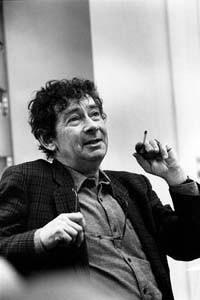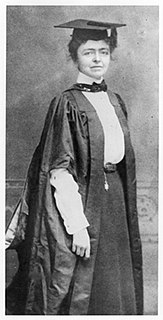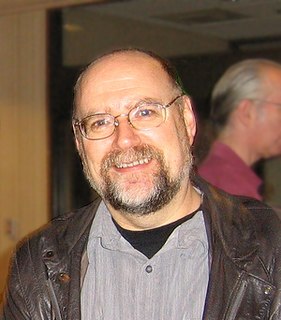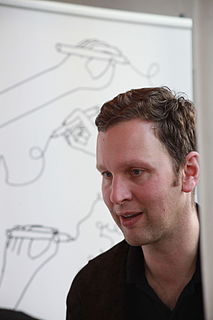A Quote by Chris Abani
Unlike other books or TV shows or sometimes life, my narrative worlds are stripped of implicit moral centers. There is only what you bring. That makes the characters risky in every way and the narrative, a journey of change for the reader. But I make the journey as fun as I can.
Related Quotes
Since I hold no judgments against my characters, no matter how heinous they might seem, I present them as real people with their own moral centers. We might feel those moral centers are mis-calibrated, but they are there and are the rudders that propel them. This makes reading my work a visceral roller coaster, 'cause the reader must embark on the journey of the protagonist equipped only with his or her own moral center.
Here's my theory: I think both fiction and role-playing games involve a narrative journey. When that journey never ends, it feeds an addictive cycle. When that journey has an end, it brings us back to ourselves and to our own lives. This return allows us to reflect. Perhaps this is why I prefer a closed structure for books and games.
Any narrative, whether it's fiction or not, you have to approach it as though it really happened to you. I think that's the only way to get inside the characters and make the narrative work. It's a storytelling tradition, and I think to come off as genuine then you have to really approach it that way.
I guess the wildcard here is Terrence Malick. He supervised me while I was writing the script for Beautiful Country, and he is a genius, although not always easy to follow. What I learned from him is that the narrative can be tracked through all kinds of scenes, that the strong narrative thread is not always the one that is most obvious. Creating narrative with Malick was a bit like chasing a butterfly through a jungle. This approach to narrative is fun and complicated, something that makes the process of writing constantly interesting to this writer.
The process of writing a novel is like taking a journey by boat. You have to continually set yourself on course. If you get distracted or allow yourself to drift, you will never make it to the destination. It's not like highly defined train tracks or a highway; this is a path that you are creating discovering. The journey is your narrative. Keep to it and there will be a tale told.
There is really no fiction or non-fiction; there is only narrative. One mode of perception has no greater claim on the truth than the other; that the distance has perhaps to do with distance - narrative distance - from the characters; it has to do with the kind of voice that is talking, but it certainly hasn't to do with the common distribution between fact and imagination.
Over the years, I learned that in my career, unlike in life, sometimes my wheelchair is its own automatic door opener. I was able to win the OWN competition by applying one simple principle: be funny, and admit you suck before anyone else can call you out on it. In other words, make the narrative of your failure a comedy.
Most people just half-watch TV. They watch TV while they are doing many other things in the environment of their home. So, what they are doing goes through their ears as much as through their eyes. In television, the narrative and characters are in the foreground of everything, because you are watching TV as you do other stuff.


































